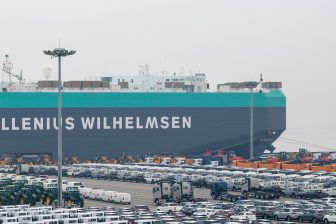
MSC joins Roundtable on Sustainable Biomaterials
The Geneva-based Mediterranean Shipping Company (MSC) has joined the Roundtable on Sustainable Biomaterials (RSB), an international membership organisation that aims to lead the fair and sustainable transition to a bio-based, circular economy. RSB has been guiding sector transformation in the bio-economy for over a decade.
This commitment is part of MSC’s strategy to decarbonise its operations, with the aim of achieving net zero by 2050. The company has also publicly committed to enabling sustainable supply chains, as well as collaborating with other actors in the maritime industry. MSC has been a pioneer in the use of responsibly-sourced biofuel to lower CO2 emissions and has a carbon insetting programme, called MSC Biofuel Solution, which is an example of the company incorporating biofuel as part of its offerings to customers.
By joining the community, MSC will participate in the research and development of the RSB Standard, a peer-reviewed sustainability framework, developed to promote sustainable biomaterial production processes and value chains. It is used to develop projects, knowledge and best practices, in collaboration with businesses, for them to better deliver on their commitment to sustainable development. MSC will also have access to industry initiatives like the RSB General Standards Working Group, and the PTX Working Group.
Stefania Lallai, VP of Sustainability at MSC Cargo Division, stated: “Shipping and logistics have an important role to play in enabling the global energy transition, and MSC is in a unique position to contribute to the decarbonisation of global supply chains. But we cannot address this challenge alone. We believe that collaboration is key and that we must capitalise on the interdependencies between shipping and other sectors throughout the transition. We are pleased to join RSB to promote low- and zero-carbon fuels that will accelerate the transition.”
You just read one of our premium articles free of charge
Register now to keep reading premium articles.




